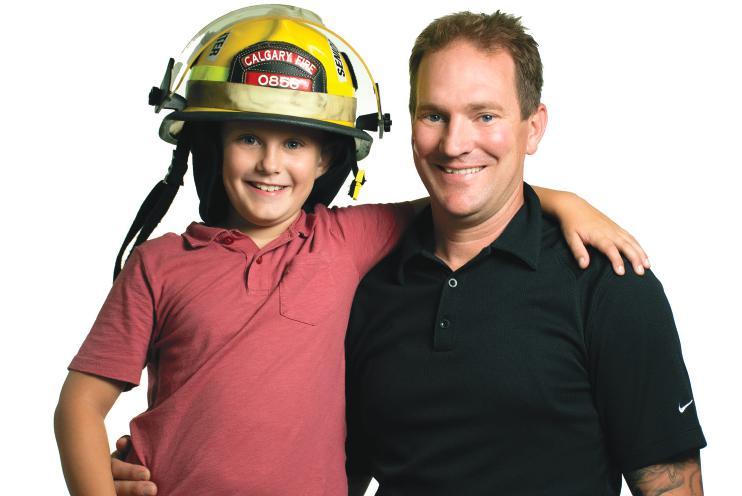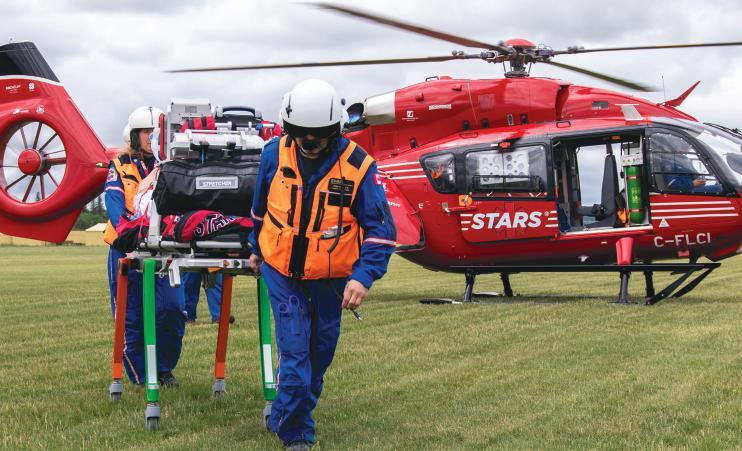
4 minute read
Non-Profits
Inclusion Saskatchewan
Choices. Opportunity. Inclusion. Life should offer these things – to all of us. Inclusion Saskatchewan is a non-profit association working to make this vision a reality for individuals with intellectual disabilities across Saskatchewan. Formerly the Saskatchewan Association for Community Living, we changed our name to Inclusion SK in 2018 to reflect the greatest desire of the people we support: to be valued, supported and included members of our society. We have come a long way in the 65 years since Dr. John Dolan decided his daughter had a right to an education, and with other parents, founded our association to achieve his goal of education for all. About 23,000 people in Saskatchewan have an intellectual disability, and many still encounter barriers to living a full life in the community. Inclusion SK connects people to available supports and develops solutions to systemic problems that affect people who have intellectual disabilities, in areas ranging from income support, education, health, housing, justice, and employment, and transitioning from high school to adult life.
Advertisement
We invite you to discover the power of inclusion by coming to an Inclusion Tour, a one-hour lunch-and-learn event offered monthly in our Saskatoon office. RSVP at https://www.inclusionsk.com/getinvolved.

Age-friendly cities are great places to “grow up and grow old.” The City of Saskatoon received the Age-Friendly Recognition Award from the Province of Saskatchewan on December 3, 2019. The award recognizes communities that take sustainable actions to become age-friendly.
Led by the Saskatoon Council on Aging [SCOA], the Age-Friendly Saskatoon Initiative [AFSI] aimed for community change to establish Saskatoon as an age-friendly city. The City collaborated with the project and implemented key recommendations.
AFSI has many success stories. SCOA’s health and wellness programs such as SCOA Globe Walk and Seniors Neighbourhood Hub Clubs emerged from AFSI recommendations. Due to the contributions of older adult volunteers, the project changed community conversations about growing older in Saskatoon.
Society must adjust its attitudes towards aging for change to happen. Growing older should be viewed as a natural part of life, not a liability. Older adults stay healthier and happier when they participate in the community and connect with others. Staying active, engaged and informed supports positive aging and improves quality of life for everyone. That is what SCOA’s work is all about.
The Saskatoon Council on Aging promotes positive aging for all in an age-friendly community. To find out more visit scoa.ca. Age-friendly Communities: Everyone Wins
STARS
Saskatchewan’s far-reaching rural population is often challenged by a lack of quick access to emergency health care. That’s why since 2012 STARS, a non-profit, charitable air ambulance service, has been an invaluable part of the chain of survival in the province. But STARS is not only for those who reside in rural areas. Wade Cassidy lives in Saskatoon, and his work takes him on the road throughout Saskatchewan. In addition, he and his family spend summer weekends at their cabin on Chitek Lake.
At 42 years old, Wade was in good health. However, while lifting his boat dock out of the water in September 2018, he suddenly felt dizzy, nauseous and experienced intense pain in his chest.
As he lay on the dock in pain, he thought to himself, “I’ve got two young kids, a wife, everything to live for. I refuse to accept that this is the end.”
Thanks to the quick response of his family, neighbours, local EMS and STARS, Wade fought for his life, survived cardiac arrest NON-PROFITS
and underwent emergency surgery at Royal University Hospital.
Wade was told that without his rapid transport by STARS, he most likely would not have survived. “I owe my life to STARS,” he said.
Act FAST to save lives!

In February 2018, then 8-year-old Max Pozzo learned the FAST signs of stroke at his Calgary school’s Jump Rope for Heart assembly. Just five days later, his dad, Mike, had a stroke – and Max jumped into action. Because Max was now able to recognize the signs of stroke and knew to call 9-1-1, his dad received speedy treatment at the nearest stroke centre and has recovered fully.
While stroke is most common in men and STARS receives 50 per cent of its operating budget from the Government of Saskatchewan. It fundraises for the remaining $10.5 million required annually to run its two Saskatchewan bases. STARS.CA

women over 65, it can happen to anyone. Mike Pozzo was only 40 years old, as a firefighter he stayed in good shape and had no known risk factors.
Stroke is a medical emergency. The faster someone gets medical help, the better their chances of a full recovery. Knowing the signs and calling 9-1-1 can make the difference between life and death, or between full recovery and lasting disability.
That’s why teaching the FAST signs of stroke is a key priority for Heart & Stroke in Saskatchewan. And we’re so fortunate to have support this year from the Government of Saskatchewan to deliver this life-saving knowledge across the province.
FAST is an easy-to-remember acronym: Face – is it drooping? Arms – can you raise both? Speech – is it slurred or mumbled? Time – to call 9-1-1.
Learn more at www.heartandstroke.ca/fast








